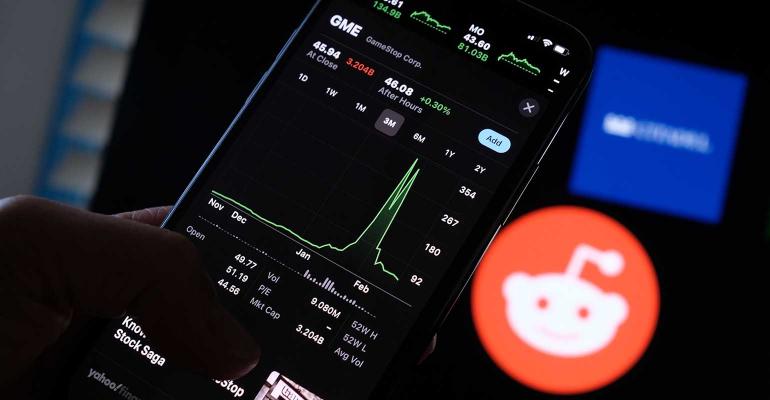A co-founder of an online broker/dealer marketing to active traders settled charges with the Securities and Exchange Commission for publicly boasting the firm never restricted trades during the “meme stock” market tumult of winter 2021, though it actually barred some trading for a brief period of time.
The SEC charged the Brooklyn, N.Y.–based broker TradeZero America and co-founder Daniel Pipitone with making misleading statements over whether it acquiesced to the requirements of its clearing broker, Apex Clearing.
“This case sends a powerful message that participants in our capital markets cannot exploit market turbulence to deceive customers,” SEC Enforcement Division Associate Director Melissa Hodgman said about the case.
In the midst of the meme stock market volatility on Jan. 28, 2021, Apex Clearing demanded its introducing brokers (including TradeZero) restrict trading on stock in GameStop, AMC and Koss Corporation, according to the SEC’s order.
Other brokerage firms popular with meme stock traders, like Robinhood, were heavily criticized for stopping trades during the volatile price swings, brought about in part by retail investors swapping information in public forums and forcing a short squeeze in certain securities, causing their prices to skyrocket.
Initially, TradeZero allegedly refused to restrict trading for more than two hours, but after pressure from Apex, the broker decided to enact the restriction. But only 10 minutes later, Apex called Pipitone to tell him Apex had lifted the restriction and TradeZero investors were again free to trade.
After these restrictions ended, TradeZero and Pipitone made several public statements that the broker had resisted Apex Clearing’s demand to restrict trading, even though TradeZero did briefly comply with the restrictions, according to the SEC (the firm did allow customers to liquidate trades during the brief restricted period).
One day later, on Jan. 29, TradeZero and Pipitone participated in a Reddit Ask Me Anything (AMA) on the subreddit r/wallstreetbets. During the AMA, Pipitone said that firms blocking trades during the volatility were “disgusting, unprecedented” and that TradeZero had told Apex Clearing that “theres [sic] NO way we are shutting these off.”
“Pipitone promised, ‘a leadership team that will go thermonuclear on clearing firms if they try to block your trades. Screw everyone that rolled over on this,’ while omitting that TradeZero also did comply with the clearing broker’s instruction to restrict three symbols,” the order read.
At several other points, TradeZero allegedly misrepresented its actions in the wake of Apex’s restrictive demands. The same day as the AMA, the broker issued a press release highlighting its resistance against Apex, while also touting an increase in accounts on TradeZero. In the release, Pipitone opined that “word circulated” that TradeZero clients had been allowed to trade the entire time.
In several interviews, Pipitone repeated this claim, but in an interview several days later, Pipitone acknowledged TradeZero briefly stopped investors from trading the stocks, according to the SEC. But the broker purportedly benefited from the false claims; in the 36-hour period after trading briefly halted (as well as TradeZero’s press release and AMA), new account applications for the broker were 200 times greater than its daily average for new applications during the previous year, according to the order.
TradeZero did not comment, and Apex Clearing has not returned requests for comment.
In settling the charges, TradeZero and Pipitone did not admit or deny the findings, but agreed to a cease and desist, and to bring in an independent compliance consultant to review the firm’s compliance policies and procedures. The broker also agreed to a $100,000 penalty, with Pipitone agreeing to pay $25,000.





